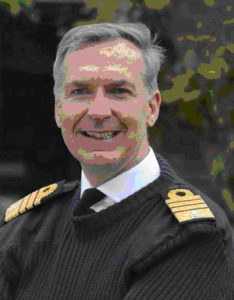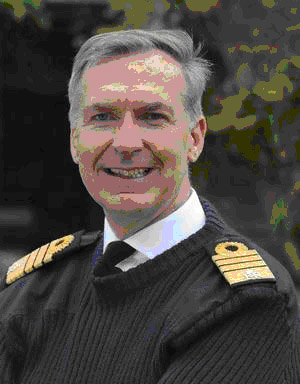Royal Navy Chief Pushes For Cooperation Between U.K. And India
New Delhi, January 19, 2020

Admiral Tony Radakin laid particular emphasis on collaborations in the development of aircraft carriers and discussions on electric propulsion.
Observing that both India and the U.K. are working on aircraft carriers, fifth generation fighter aircraft and integrated electric propulsion, Admiral Tony Radakin, First Sea Lord and Chief of Naval Staff, U.K., said it feels “immensely comfortable and strategically sensible that we should be looking to converge and come together”.
There are amazing sets of investments going on in the Indian military, Adm Radakin said, which is aircraft carriers, submarines and thinking about integrated electric propulsion and the Royal Navy is going through its own significant recapitalisation, growing for the first time in 70 years. We will grow in tonnage terms by 30% in size between 2015 and 2025. And while five years ago the U.K. had no aircraft carriers, “We now have two,” he said.
“When you marry that with a nation like India and the journey that it is on, it is immensely comfortable and strategically sensible that we should be looking to converge and come together. Those are the conversations we are having and they are exciting…,” he told The Hindu on the sidelines of the Raisina Dialogue last week jointly organised by the Ministry of External Affairs and the Observer Research Foundation.
On this, the Royal Navy chief laid particular emphasis on cooperation on aircraft carriers and discussions on electric propulsion. He said there is clarity for most navies that are seeking to modernise and to embrace technology that electric propulsion “is the way to go” and it then starts to open up opportunities with directed energy weapons. “The U.K. position is that we have very clear, shared values and responsibilities and ambitions and therefore we would look to collaborate with India as a friend.”
The U.K.’s renewed focus on the Indo-Pacific comes as the country prepares to leave the European Union (E.U.). Referring to this, Adm. Radakin said as part of the U.K.’s long presence in the Indian Ocean and in conjunction with that, the ability of the U.K. to be “both taking stock as it leaves the EU and the clarity of the government that this is not retrenching the world. If anything there is a need for us to emphasis our broader role in the rest of the world”.
Elaborating on the common interests, he said both countries have such a reliance on the energy that flows through the Strait of Hormuz. “We shouldn’t get too fixated by individual security constructs. I think at this stage we should be confident that we have the ability to work together to share information that we both have the same shared interests and values, and that enhances mutually our own security.”
Referring to the Indian Navy’s Information Fusion Centre for Indian Ocean Region (IFC-IOR), Adm. Radakin said fusion centres are an example of collaboration at a tactical level “but really a strategic operational level signalling of where countries come together”.
The U.K. has already accepted India’s offer to post a Liaison Officer at the IFC-IOR which is likely to happen sometime next year. Also the Queen Elizabeth Carrier Strike Group is scheduled to undertake its maiden operational deployment in the Indian Ocean Region in 2021.
Courtesy: The Hindu

